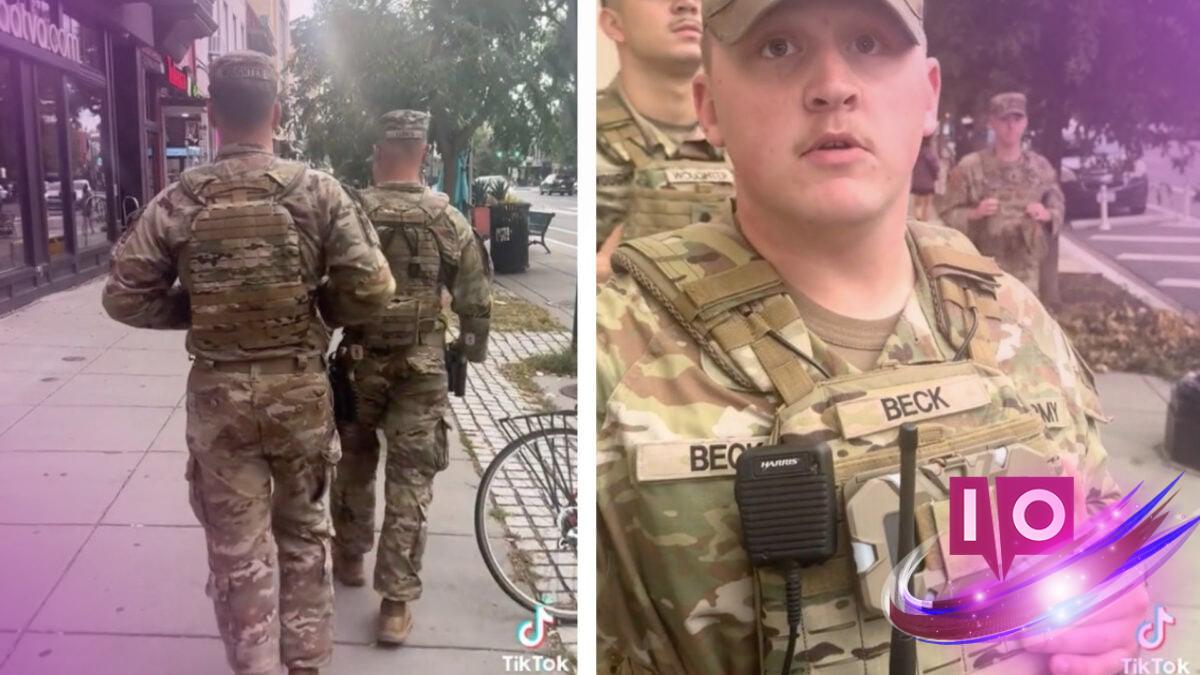In September, a man in Washington D.C. faced serious legal issues after conducting what he termed a peaceful protest by following National Guard troops while playing “The Imperial March,” the iconic theme from Star Wars. This unusual incident has escalated into a lawsuit, raising significant questions about First and Fourth Amendment rights.
Sam O’Hara, aged 35, was walking in the Logan Circle neighborhood when he saw National Guard members. Captivated by a moment he felt encapsulated his beliefs, he started playing the song from his phone, capturing the event for his TikTok account. However, it didn’t take long for one of the soldiers, Sgt. Devon Beck, to confront him, reportedly threatening to call the police if he didn’t cease playing the music.
O’Hara continued his protest despite the warning. Soon enough, the Metropolitan Police Department was called in. He was handcuffed for about 15-20 minutes, during which he reported being “tightly handcuffed,” a situation that left marks on his wrists and caused him discomfort, particularly painful the following day.
The four officers involved in the arrest—Tiffany Brown, JM Campbell, Edward Reyes-Benigno, and Alfonso Lopez Martinez—are named in the lawsuit filed with the aid of the ACLU. O’Hara claims that the distress from the encounter has affected his sense of safety and made him anxious around law enforcement.
The law may have once permitted government actions like this “a long time ago in a galaxy far, far away,” but in today’s world, the First Amendment protects peaceful protests while the Fourth Amendment safeguards against unreasonable searches and seizures.
The societal implications of this case are profound, especially in the wake of government officials deploying National Guard units across various cities for reasons rooted in political strategy. While D.C. holds unique legal status allowing the president significant powers, the protections of free speech and protection from unreasonable search apply nationwide, including the nation’s capital.
Interestingly, efforts to embed O’Hara’s TikTok videos about the arrest faced challenges, including warnings from the platform indicating potential discomfort for viewers. While the content was not particularly graphic, O’Hara now continues to share videos of his encounters with National Guard troops, maintaining his original message through his account, @freedc20009.
What are my First Amendment rights regarding protests?
Your First Amendment rights allow you to assemble peacefully and express your views without interference from the government. This includes the right to protest, although certain restrictions may apply depending on location and situation.
Can police arrest you for recording them?
Recording police while they are performing their duties in public spaces is generally supported by First Amendment rights. However, circumstances surrounding the recording could result in legal complications, especially if other laws are perceived to be violated.
What should I do if I feel my rights are violated during a protest?
If you believe your rights were violated, document the incident, gather evidence like videos or witness accounts, and consult with a legal expert to discuss the possibility of a lawsuit or complaint.
As this case develops, it highlights the ongoing struggles between personal expression and government authority. For more engaging content on similar topics, explore more articles at Moyens I/O.
